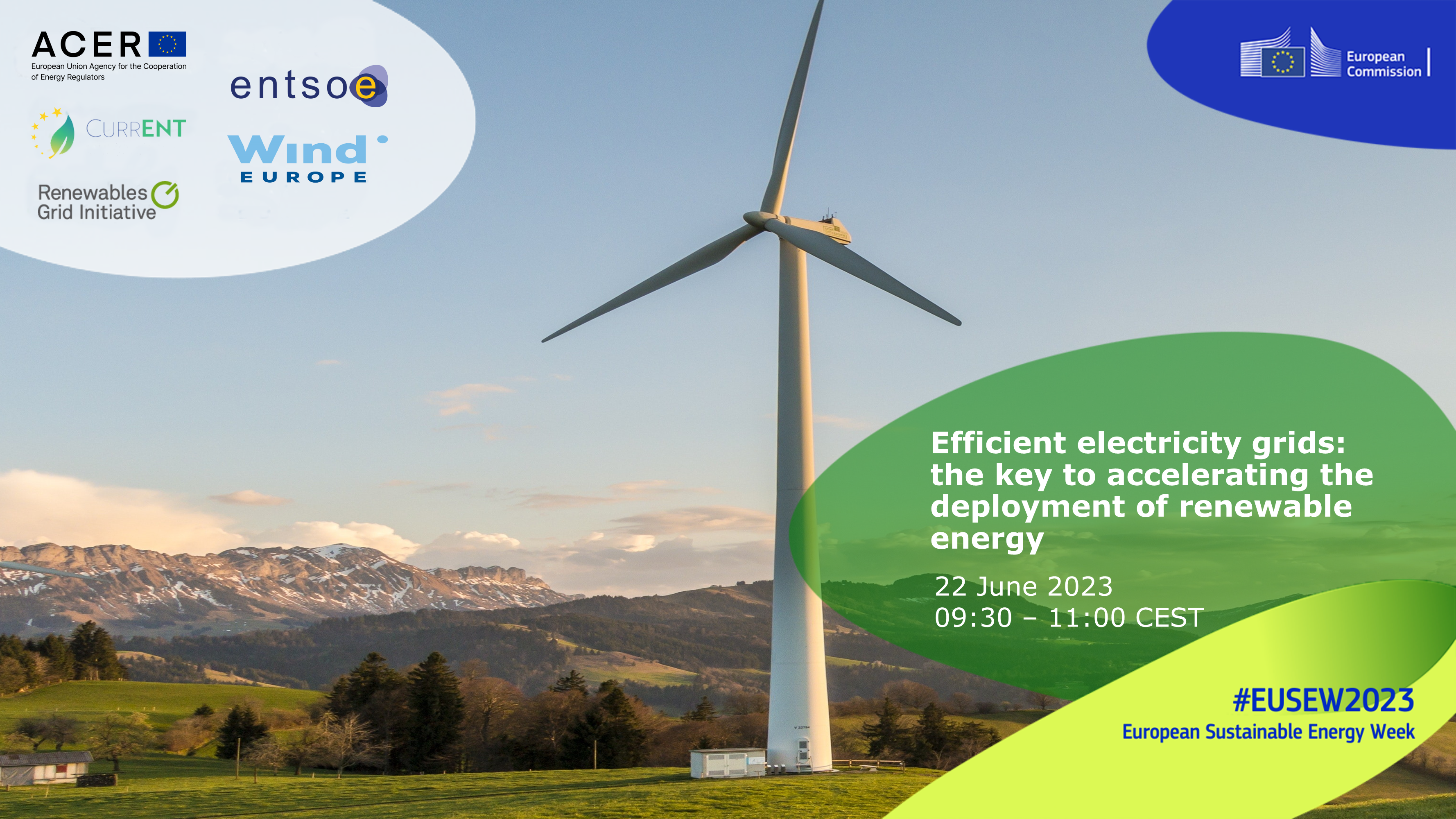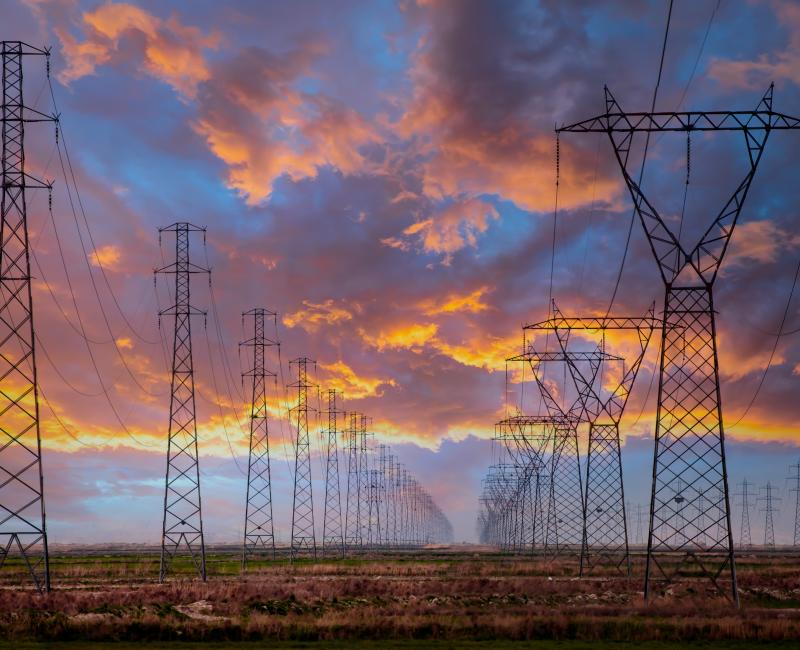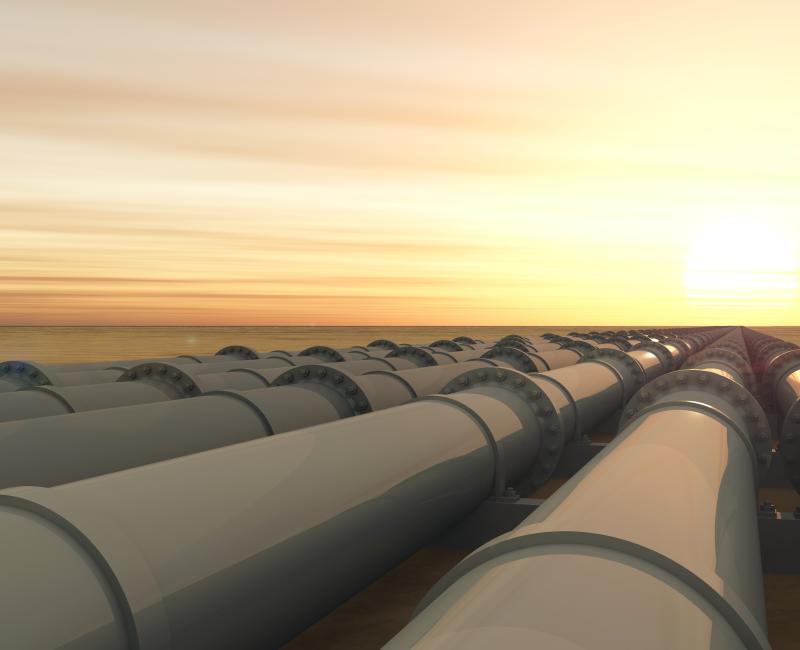Network congestion in EU gas markets tripled in 2022

Network congestion in EU gas markets tripled in 2022
What is it about?
In its 10th Report on Congestion in the EU Gas Markets and How it is Managed, ACER finds a tripling of network congestion. ACER calls on gas Transmission System Operators (TSOs) and National Regulatory Authorities (NRAs) to relieve the bottlenecks.
In the gas market crisis, short-term mitigating actions are important. Europe’s voluntary gas-demand reduction target has been extended until 31 March 2024 and storage-filling trajectories for 2023 have been updated. Addressing the most acute bottlenecks presents a no-regret measure to improve market efficiency in the short term.
Understanding congestion and shift in gas supply routes
Congestion occurs first at the level of contracts when network users cannot obtain the capacity contract they need to flow gas. It is addressed by bringing any unused capacity back to the market.
In the wake of the Russian invasion of Ukraine, the changes in supply and demand created gas transportation bottlenecks. With liquified natural gas (LNG) and increased pipeline supplies primarily entering the EU from the west (in a system originally designed for transporting Russian supplies to Europe), bottlenecks in transportation occurred.
Due to physical congestion at LNG terminals and at cross-border pipelines in North-West Europe, the system was used at full capacity and gas could not easily flow to where it was needed most during the 2022 energy crisis, which drove hub price-spreads high. To address these bottlenecks in the short term, the existing gas infrastructure must be optimised to accommodate new supply routes.
What are Report’s key findings?
- Congestion emerged at 50 interconnection points following tight market conditions and the need to reroute gas flows away from historic east-west routes to predominantly west-east routes in Europe (with the Russian invasion of Ukraine);
- Congestion revenues collected by TSOs rose sharply from €55 million in 2021 to around €3.4 billion in 2022;
- In North-West Europe, congestion was also physical, meaning that LNG terminals and gas pipelines in North-West Europe were fully used; and
- The most used mitigating measure to avoid unused capacity was selling interruptible capacity, while oversubscription remained the most used among the congestion management procedures (CMPs) that aim to make (unused) firm capacity available.
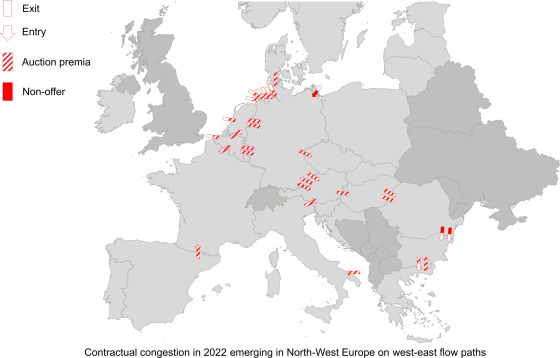
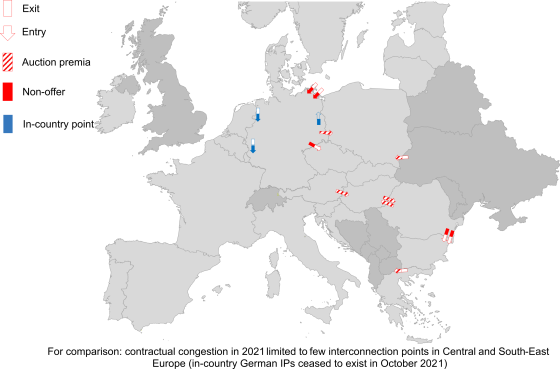
What does ACER recommend?
ACER urges:
- TSOs to address congestions and maximise availability of capacities;
- NRAs to monitor the congestion in their markets more closely to contribute to the efficient functioning of the internal market for gas.
Access ACER’s 10th Report on Congestion and its technical annex.
